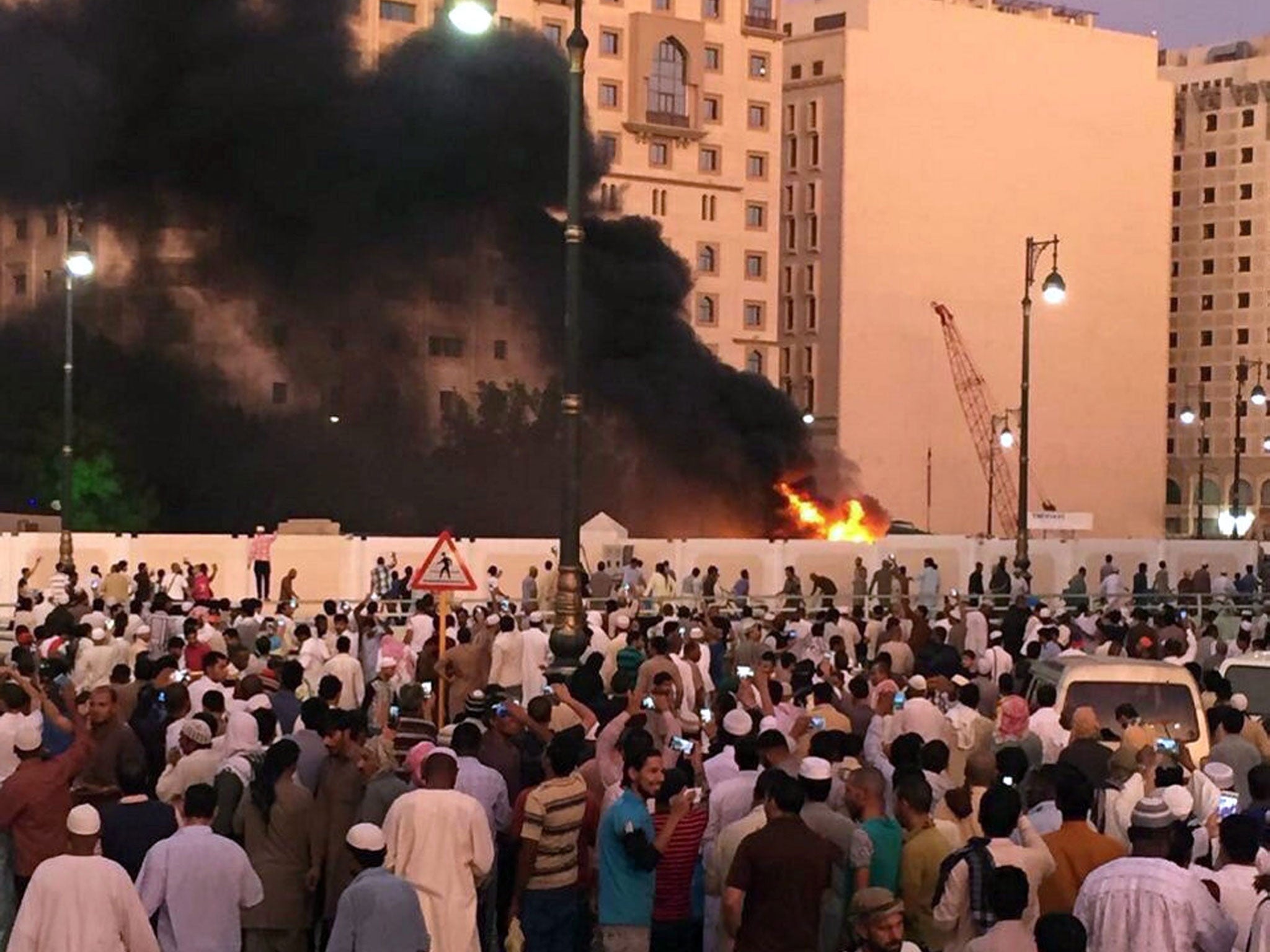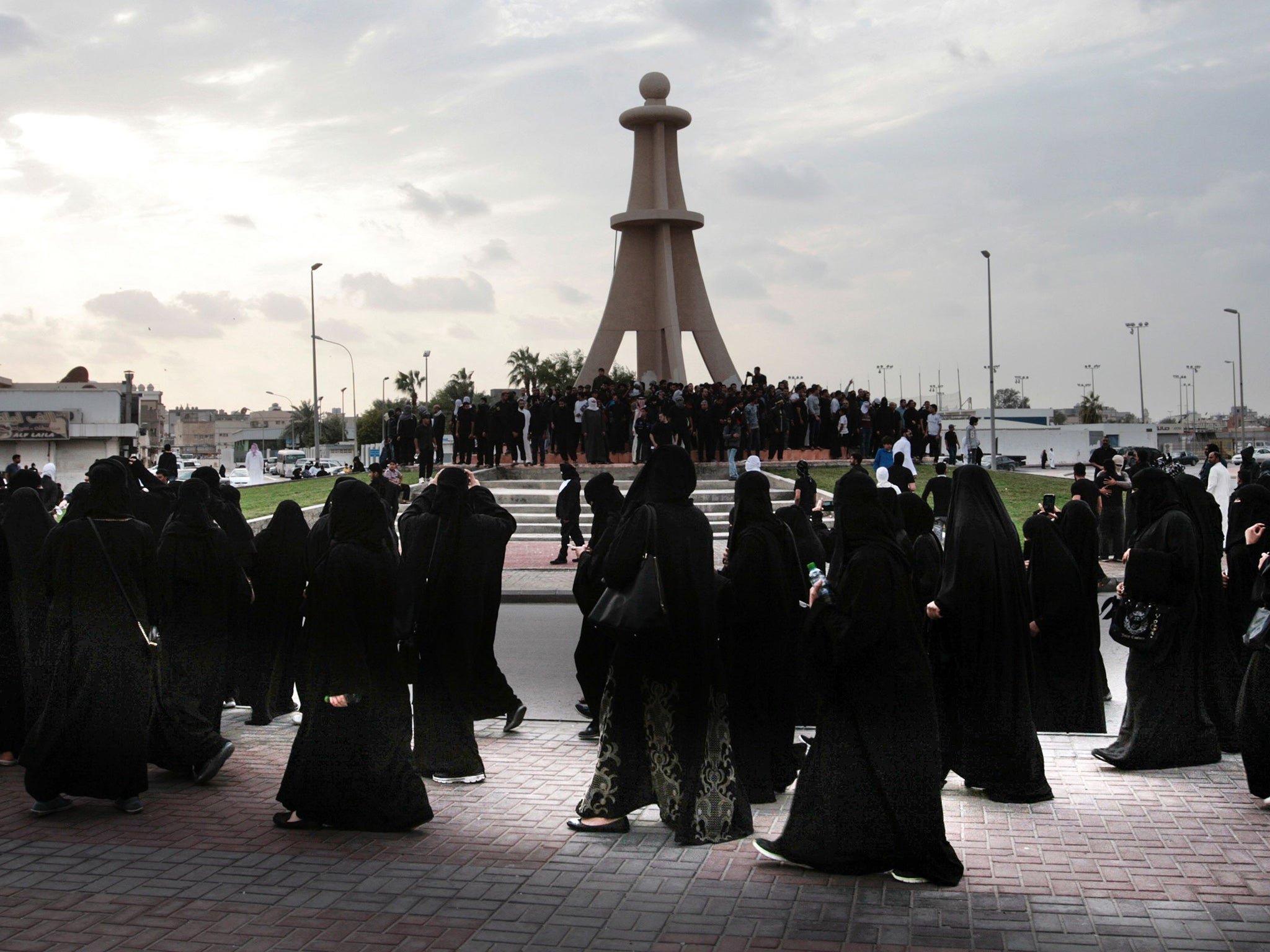Iranian foreign minister accused of hypocrisy after call for Sunni and Shia Muslims to 'unite as one' after attacks
Javad Zarif was criticised for his country's role in Syria and other conflicts

Your support helps us to tell the story
From reproductive rights to climate change to Big Tech, The Independent is on the ground when the story is developing. Whether it's investigating the financials of Elon Musk's pro-Trump PAC or producing our latest documentary, 'The A Word', which shines a light on the American women fighting for reproductive rights, we know how important it is to parse out the facts from the messaging.
At such a critical moment in US history, we need reporters on the ground. Your donation allows us to keep sending journalists to speak to both sides of the story.
The Independent is trusted by Americans across the entire political spectrum. And unlike many other quality news outlets, we choose not to lock Americans out of our reporting and analysis with paywalls. We believe quality journalism should be available to everyone, paid for by those who can afford it.
Your support makes all the difference.Iran’s foreign minister has called for Sunni and Shia Muslims to stand “united as one” after terror attacks hit Saudi Arabia and Iraq.
More than 160 people were killed in an Isis truck bombing in Baghdad on Sunday, while a suicide bomber blew himself up near the tomb of the Prophet Mohamed in Medina.
Javad Zarif, the Iranian foreign minister, wrote on Twitter: “There are no more red lines left for terrorists to cross. Sunnis, Shiites (Shias) will both remain victims unless we stand united as one.”
Following the Baghdad attack he said the government “would not rest” until the Isis terrorists behind the atrocity, as well as the Istanbul and Dhaka attacks, were defeated.
But there were immediate accusations of hypocrisy over Iran’s funding of predominantly Shia militias that have been accused of war crimes in Syria, Iraq and elsewhere.
The UN High Commissioner for Human Rights said a paramilitary group allegedly funded by Iran abducted hundreds of men and boys fleeing Fallujah last month, starving and beating them before shooting and beheading some prisoners, with at least two bodies set on fire.
“These crimes are not only abhorrent,” Zeid Ra'ad al-Hussein said. “They are also wholly counterproductive.
“They give Isis a propaganda victory, and push people into their arms. They increase the likelihood of a renewed cycle of full-throttle sectarian violence.”
Tehran is supporting Bashar al-Assad’s regime against Isis and rebels, while fighting for Iraqi government forces and allegedly backing Houthi rebels in the Yemen civil war.
Commenters responding to Mr Zarif's post accused the Iranian regime of “fuelling sectarianism” with its position as a Shia Islamist state and proxy war with the Sunni republic of Saudi Arabia and its allies.
Shias comprise Iran’s majority, as they do in Iraq, Bahrain and other nations, while Sunnis are dominant in Saudi Arabia and more than 40 countries stretching from Morocco to Indonesia.
While al-Qaeda leaders consider attacks on Shia civilians too extreme and detrimental to public support – as well as a distraction from its jihad against the West – Isis has made the massacres a priority, targeting symbolic shrines, holy cities and pilgrimages after declaring followers of the sect to be apostates.
There was no immediate claim of responsibility for Monday’s bombing in Medina, which provoked global outrage for desecrating one of Islam’s holiest sites during the holy month of Ramadan.
Saudi Arabian authorities identified the attacker as a Pakistani man who arrived in the country 12 years ago to work as a driver.

The suicide bombing killed four members of the Saudi security forces and injured five more in the grounds of a mosque visited by millions of Muslims every year as part of the Hajj pilgrimage to Mecca.
Local reports said the attacker intended to strike worshippers packing the mosque for sunset prayers at the end of Ramadan.
“That's not an act that represents Islam,” said Altayeb Osama, a 25-year old visitor from Sudan. “People never imagined that this could happen here.”
Also on Monday, a suicide bomber blew himself up near the US Consulate in Jeddah – killing himself but no victims – and another attack was attempted at a Shia mosque in Qatif.
Saudi Arabia is part of the US-led coalition bombing Isis in Iraq and Syria, and the militant group views its ruling monarchy as an enemy and illegitimate source of Islamic authority.
It has been the target of multiple attacks by the group, totalling at least 26 in the last two years according to interior ministry figures.
Join our commenting forum
Join thought-provoking conversations, follow other Independent readers and see their replies
Comments